Marvel Needs To Learn From DC’s Biggest Success
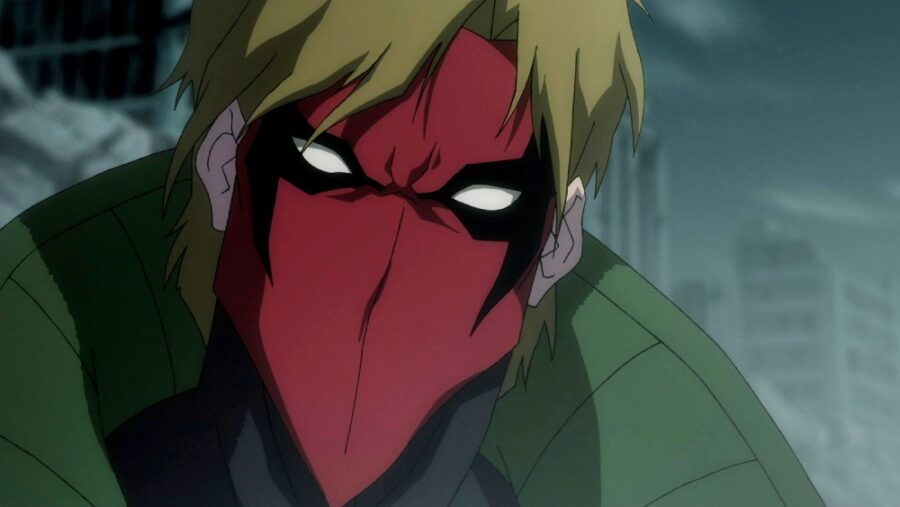
Long before anyone was talking about superhero fatigue there was a general consensus that while Marvel’s live-action offerings were superior to DC’s adaptations, when it came to animated films and TV series Marvel wasn’t even in the same league. Over a decade and a half after the MCU was born, and that still hasn’t changed. It’s about time Marvel learn from the Distinguished Competition and give us some consistently award-worthy animation.
DC’s Animated Work Is Incredible

Animation-wise, there’s little that’s been adapted from Marvel arm that can compare to the best of the DC Animated Universe, which was born long before the MCU — in 1992 with Batman: The Animated Series. That fan-favorite was followed by shows and films like Justice League, Justice League Unlimited, Batman Beyond, and Static Shock. While they were targeted at children, certain episodes of these great series — particularly Batman: TAS and Justice League Unlimited — proved utterly heartbreaking in the best kind of way.
Then there’s the DC Animated Movie Universe (DCAMU) which started in 2013 with Justice League: The Flashpoint Paradox and whose last offering was 2020’s Justice League Dark: The Apokolips War. In the beginning much of the DCAMU’s focus seemed to be on animating the company’s “New 52” material, but along the way it adapts other classic stories like Hush and The Death of Superman.
Beyond the kind of connected cinematic universes Marvel and DC are known for, there are some incredible standalone animated films like Batman: The Dark Knight Returns (released in two parts) and Justice League: Crisis on Two Earths. Your mileage will always vary of course. If someone snuck into my place in the middle of the night and scrubbed the memory of Batman Ninja from my brain I wouldn’t complain, but for the most part if you hit play on a DC animated offering, you won’t be disappointed.
Marvel’s Already Proven It Can Challenge DC
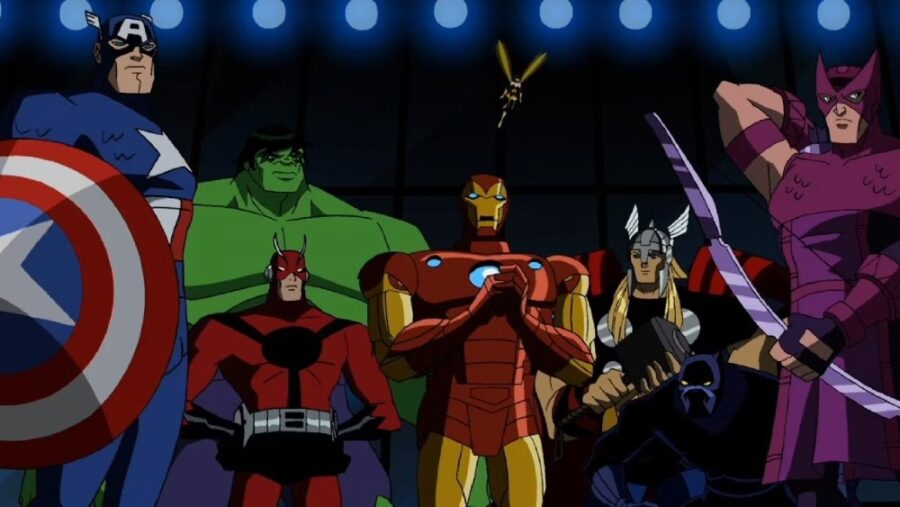
It isn’t like Marvel doesn’t know how to find great creators to make animated content like DC. Along with the Spider-Verse movies, we’ve seen great animated stuff come out of Marvel like The Avengers: Earth’s Mightiest Heroes, X-Men: The Animated Series, Spectacular Spider-Man, Marvel’s M.O.D.O.K., What If, and more. It’s just not consistent, and more often than not it’s geared toward younger audiences.
That’s great, of course, there should be plenty of family friendly animated offerings from Marvel, but like DC, they should have more animated series and films targeted at adults.
Animated Movies Allow For More Adult Content
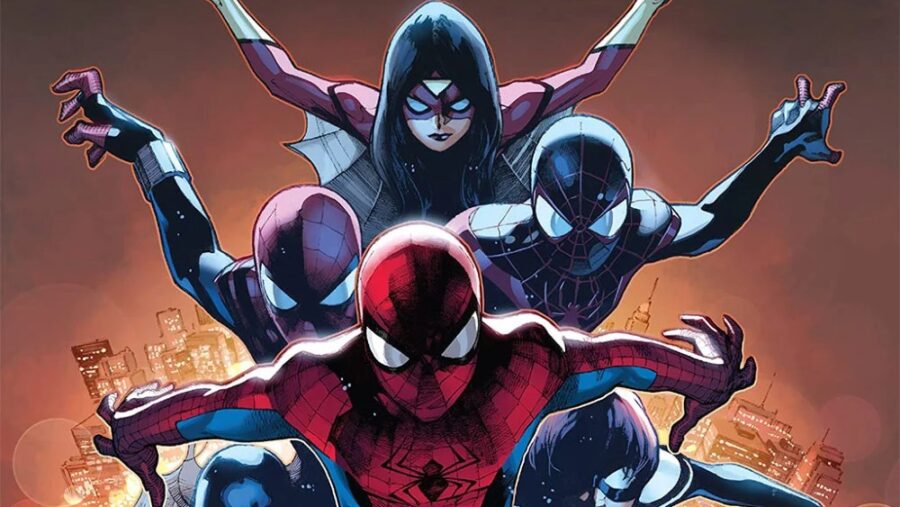
Unlike Marvel, DC has already toyed with adapting more adult oriented stories. Parents probably wouldn’t want their younger kids watching animated versions of Batman: The Killing Joke and Superman: Red Son. Marvel has their own library of bloodier content that they could adapt into animated films or series including, no I’m not kidding, Spider-Verse.
The comics upon which Spider-Man: Into the Spider-Verse and its sequels are based are much more brutal than Sony’s films. The comics involve a group of energy-devouring, nigh-unbeatable villains called the Inheritors who are determined to kill and eat every version of Spider-Man across the multiverse, and we watch them do it to some very beloved variants. Not only did it inspire the Spider-Verse movies, but it spawned characters who are practically household names now, like Spider-Gwen and Spider-Punk.
More Faithful Adaptations
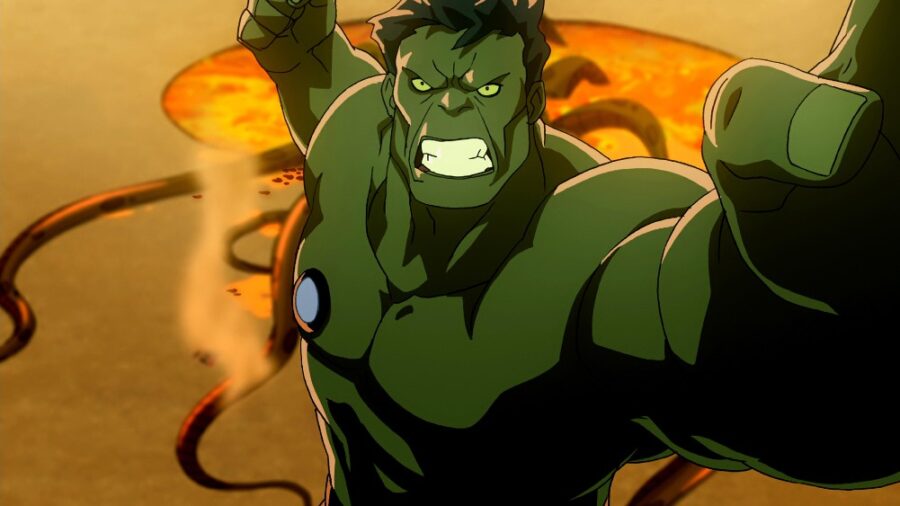
One of the obvious reasons live-action adaptations of Marvel and DC stories often shave off much of the source material is the limitations of filmmaking. It’s easier, and much less expensive, to have characters crossing galaxies and alternate realities in a comic book than it is in a live-action film. But as we’ve seen again and again, animated superhero films aren’t quiet as limited.
We see this all across Marvel and DC’s animated filmography. The 2010 animated Planet Hulk is a perfect example. Like in the source material, we rarely see Bruce Banner and almost only see him as Hulk–something that would not only be more expensive in live-action, but that Mark Ruffalo might take issue with.
While there are relatively minor differences between Planet Hulk the animated movie and the comics — Hulk beats the tar out of Beta Ray Bill rather than Silver Surfer, for example — it’s about as faithful an adaptation as a Hulk fan could hope for. And it’s certainly closer to the spirit of the comic than the Sakaar sequence of 2017’s Thor: Ragnarok.
World War Hulk Needs To Be Animated
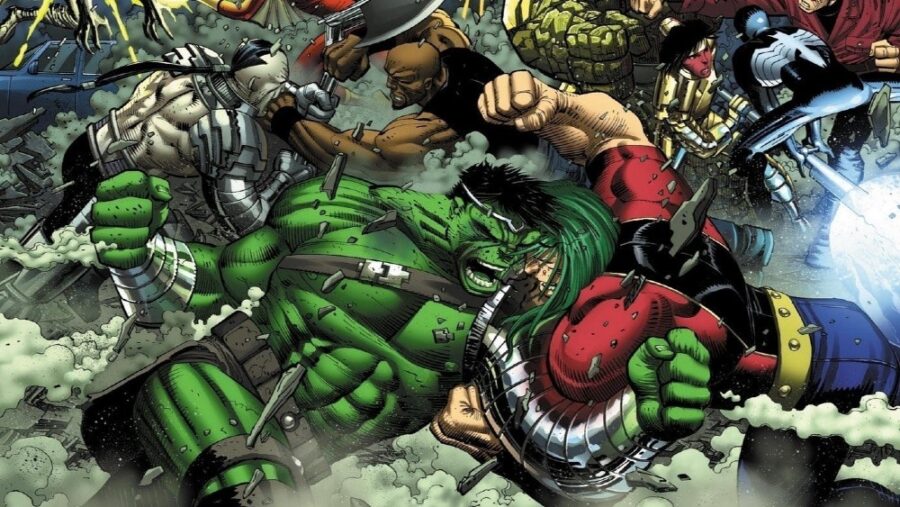
World War Hulk is another example of a Marvel story that would come off much better animated like many of DC’s offerings.
There have been rumors of an MCU World War Hulk almost since the MCU began, and if it happens it will almost certainly be nothing like the comic. It doesn’t have the Planet Hulk story to build upon, and Mark Ruffalo’s version of the character doesn’t share the antagonist relationship with Earth’s heroes that the comic book version does. But who wouldn’t watch an animated throw-down between the Hulk, his Warbound, and just about every hero in the Marvel Universe?










